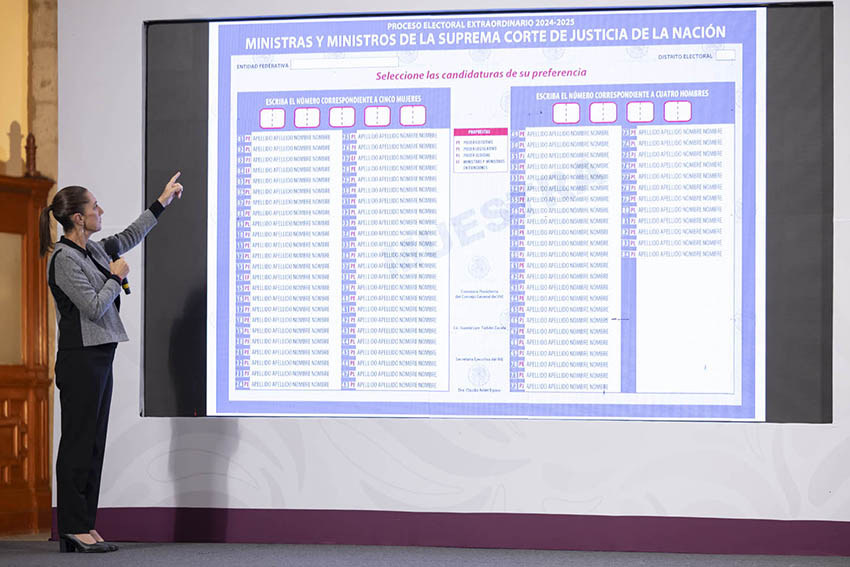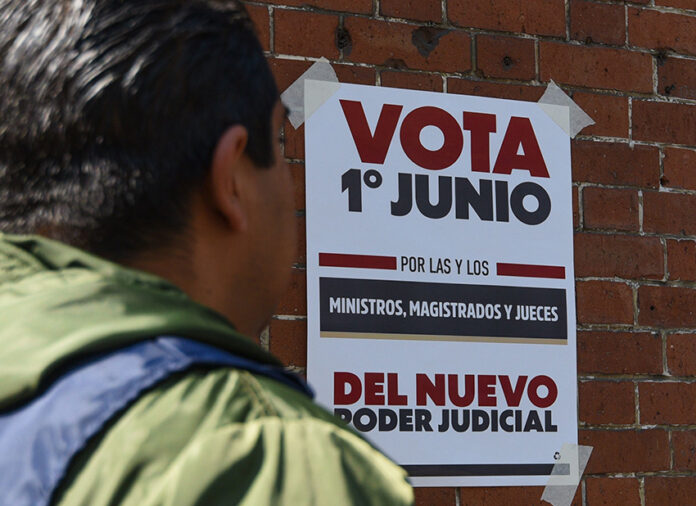Mexicans go to the polls this weekend for an election like no other, as Mexico becomes the first country in the world to elect all its judges by popular vote. The Morena-led government says Sunday’s judicial election is the first step toward weeding out corruption in the judiciary system, but the process leading up to the elections has hardly been smooth sailing.
How will the elections work?
The judicial elections are the result of a constitutional reform promoted by former President Andrés Manuel López Obrador and supported by his successor, Claudia Sheinbaum.
Citizens will elect their judges, justices of the Supreme Court of Justice of the Nation (SCJN), and magistrates from across the country through popular vote. There are 881 positions available, including nine justices of the SCJN.
Unlike typical political elections, political parties cannot participate or publicly support candidates. However, several candidates are known to have political affiliations.
What could go wrong?
The landmark elections have attracted criticism from national and international civil society organizations, who warn that the new system could threaten judicial independence.
Both López Obrador and Sheinbaum have denounced the judiciary for corruption. They have also critiqued it for blocking several of López Obrador’s reforms.

“[The judiciary] do not represent the people, but rather are representatives of the oligarchy, of the powerful,” López Obrador said in September 2024.
Opposition parties question how the change to the electoral system will tackle corruption and warn that the popular vote may encourage political actors and criminal organizations to support candidates in order to gain influence in the judiciary.
A Mexico United Against Crime (MUCD) analysis stated that “far from consolidating democracy, the popular election of members of the judiciary threatens to erode inclusion, limit informed participation, and compromise judicial independence, essential pillars of a balanced constitutional system.”
Low voter turnout expected
Recent surveys suggest that the public is ill-informed about the upcoming elections. An Enkoll survey conducted between May 18 and 20 among 1,023 Mexican adults revealed that less than 50% of those surveyed knew the exact date of the elections.
Of those surveyed, 72% said the judicial elections were “very necessary.” However, 77% did not know who the candidates for judges, ministers and magistrates were.
Candidates were not permitted to receive public or private funding, meaning they had to finance their own campaigns. Candidates could conduct restricted forms of advertising, including the use of flyers, social media and participation in events.

The National Electoral Institute (INE) launched an online portal called “Get to Know Them,” sharing the profiles and proposals of over 3,000 federal candidates.
The INE forecasts a turnout of between 18% and 20% of the population, compared to a turnout of over 60% in the 2024 presidential elections.
Several experts have voiced concern about the suitability of several judicial candidates in the upcoming elections.
Previously, the selection process for judges and magistrates included open competitions and exams and focused on merit and ability. However, the requirements for candidates in the elections now include a law degree, good grades, letters of recommendation and no prior prison sentences.
Controversy has surrounded certain candidates, with some accused or convicted of drug-related offenses, sexual abuse, corruption or ties to the criminal underworld.
The Washington Office on Latin America (WOLA) suggested that whatever happens on Sunday, these elections will provide lessons to improve the rules and logistics of the next judicial electoral process in 2027.
With reports from El Economista and CNN en Español
